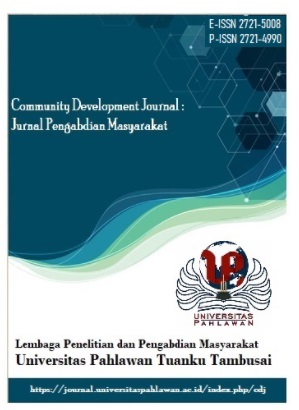RELIGIOSITY AND SUSTAINABLE DEVELOPMENT GOALS: DOES IT MATTER?
DOI:
https://doi.org/10.31004/jrpp.v6i4.23750Keywords:
Religiosity, Sustainable Development Goals, Gross Domestic ProductAbstract
Introduction/Main Objectives: This paper explores the impact of religiosity on sustainable development goals across 127 countries. Recently, there has been growing concern about the role of religion in society, as many developed countries have fewer religious followers compared to developing ones. Background Problems: Some evidence suggests that countries with lower levels of religiosity tend to have higher quality of life and a healthier environment. However, religiosity should encourage people to preserve both the social and natural environment. Therefore, it is worth investigating if religiosity serves as a driver for environmental stewardship. Novelty: Previous research has focused on various factors that influence sustainable development goals, but the contribution of religiosity to sustainable development goals has not been extensively examined. Research Methods: This research used multiple linear regression to analyze the current issue, based on religiosity data obtained from CEOWORLD and the Global Business Policy Institute across 127 countries. Finding/Results: Religiosity has a significant negative effect on Sustainable Development Goals. Additionally, GDP was used as a control variable, and the results showed a positive impact on sustainable development goals. Conclusion: The findings of this study provide an implication so that the state in realizing its sustainable development goals together with all its apparatus including religious leaders to have an aligned perspective in executing various programs in realizing the goals of the SDGs.References
Abdulla, M. R. (2018). Culture, Religion, and Freedom of Religion or Belief. Review of Faith and International Affairs, 16(4), 102–115. https://doi.org/10.1080/15570274.2018.1535033
Bentzen, J. S., & Gokmen, G. (2023). The power of religion. Journal of Economic Growth, 28(1). https://doi.org/10.1007/s10887-022-09214-4
Bentzen, J. S. (2021). Religiosity and Development. In Oxford Research Encyclopedia of Economics and Finance. https://doi.org/10.1093/acrefore/9780190625979.013.688
Biermann, F., Kanie, N., & Kim, R. (2017). Global governance by goal-setting: the novel approach of the UN Sustainable Development Goals. Current Opinion in Environmental Sustainability, 26, 26-31. https://doi.org/10.1016/J.COSUST.2017.01.010.
Cabano, F. G., & Minton, E. A. (2023). The influence of consumer religiosity on responses to rational and emotional ad appeals. European Journal of Marketing, 57(1). https://doi.org/10.1108/EJM-04-2021-0221.
CEOWORLD. (2020, May 16). Revealed: The World’s Most (And Least) Religious Countries Based On Religious Beliefs 2020. CEOWORLD Magazine. https://ceoworld.biz/2020/05/16/revealed-the-worlds-most-and-least-religious-countries-based-on-religious-beliefs-2020/
Harhoff Andersen, L., & Sinding Bentzen, J. (2022). In the Name of God! Religiosity and the Transition to Modern Growth. CEPR Discussion Paper, 16938.
Kramer, S., & Edelheit, J. (2018). Religions and religiosity: The challenge to know and to recognize the other. Foro de Educacion, 16(24). https://doi.org/10.14516/fde.592
Ksiazkiewicz, A., & Friesen, A. (2021). The Higher Power of Religiosity Over Personality on Political Ideology. Political Behavior, 43(2). https://doi.org/10.1007/s11109-019-09566-5
Liu, Z., Guo, Q., Sun, P., Wang, Z., & Wu, R. (2018). Does religion hinder creativity? A national level study on the roles of religiosity and different denominations. Frontiers in Psychology, 9(OCT). https://doi.org/10.3389/fpsyg.2018.01912
Nuraini, L., & Nashiruddin, A. (2021). Knowledge of Religion and Religiosity of Santri and Their Influence on the Pluralism. Santri: Journal of Pesantren and Fiqh Sosial, 2(1). https://doi.org/10.35878/santri.v2i1.278
Perkins, K. M., Kurti?, T., & Velazquez, L. (2022). Progress Toward the Sustainable Development Goals. International Perspectives in Psychology, 11(3). https://doi.org/10.1027/2157-3891/a000043
Qayyum, U., Anjum, S., & Sabir, S. (2020). Religion and economic development: new insights. Empirica, 47(4), 793–834. https://doi.org/10.1007/s10663-019-09456-3
Sholihin, M., Hardivizon, H., Wanto, D., & Saputra, H. (2022). The effect of religiosity on life satisfaction: A meta-analysis. HTS Teologiese Studies / Theological Studies, 78(4). https://doi.org/10.4102/hts.v78i4.7172
THE 17 GOALS | Sustainable Development. (n.d.). https://sdgs.un.org/goals
Usubiaga-Liaño, A., & Ekins, P. (2021). Monitoring the environmental sustainability of countries through the strong environmental sustainability index. Ecological Indicators, 132. https://doi.org/10.1016/j.ecolind.2021.108281
World Bank Open Data. (n.d.). World Bank Open Data. https://data.worldbank.org/indicator/NY.GDP.MKTP.CD
Downloads
Published
How to Cite
Issue
Section
License
Copyright (c) 2023 Kenley Maccauley Riyono

This work is licensed under a Creative Commons Attribution-ShareAlike 4.0 International License.






